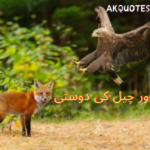Wazaif
Wazaif: A Deep Dive into Islamic Spiritual Practices
Dolat Mand Hone ka Wazifa are Islamic spiritual practices involving the recitation of specific prayers, verses from the Quran, or the names of Allah with the intention of seeking divine blessings and guidance. Rooted in the rich traditions of Islamic spirituality, wazaif are performed by Muslims worldwide to address various aspects of life, including health, wealth, protection, and personal well-being.
The Concept of Wazaif
Dolat Mand Hone ka Wazifa Wazaifs are essentially structured prayers or incantations derived from the Quran and Hadith (sayings and practices of Prophet Muhammad, peace be upon him). These spiritual practices are believed to harness the divine power and mercy of Allah, aiding individuals in their personal and spiritual journeys. The essence of wazaif lies in the belief that through sincere and devout recitation, one can attract positive energy and blessings.
Key Elements of Wazaif
1. Recitation:
– The central component of wazaif is the recitation of specific verses from the Quran, supplications (duas), or the names of Allah (Asma-ul-Husna). Each wazifa has a prescribed set of words or phrases to be recited a certain number of times. For example, reciting “Ya Razzaq” (one of Allah’s names, meaning The Provider) multiple times to seek sustenance and provision.
2. Intention (Niyyah):
– Intention is crucial in performing wazaif. A sincere and heartfelt intention (niyyah) to seek Allah’s help and blessings is essential. This intention is a personal commitment and a demonstration of faith in Allah’s ability to respond to prayers.
3. Consistency:
– Regular and consistent practice is a key principle of wazaif. Performing the recitations daily, especially at specific times (such as after Fajr or Isha prayers), is believed to enhance their effectiveness. Consistency reflects one’s dedication and perseverance in seeking Allah’s favor.
4. Faith and Trust:
– Belief in Allah’s power and mercy is fundamental to wazaif. The person reciting must have unwavering faith and trust that Allah will answer their prayers. This faith is a source of spiritual strength and resilience.
Purposes and Benefits of Wazaif
Wazaif are versatile and can be used for various purposes:
1. Seeking Wealth and Prosperity:
– Specific wazaif are recited to attract financial stability and abundance. For instance, the Dolat Mand Hone Ka Wazifa involves reciting certain Quranic verses and duas to seek wealth and prosperity.
2. Health and Healing:
– Certain verses and prayers are believed to bring physical and spiritual healing. For example, reciting Surah Al-Fatiha or Surah Al-Ikhlas for health benefits.
3. Protection:
– Wazaif can be performed for protection against harm, evil, and negative influences. Reciting Ayat-ul-Kursi or Surah Al-Falaq is common for seeking divine protection.
4. Peace and Happiness:
– Reciting particular duas can bring inner peace, contentment, and happiness. For instance, reciting “Ya Salam” (O Source of Peace) to seek tranquility.
5. Personal and Spiritual Growth:
– Wazaif can aid in personal development and spiritual growth. Reciting names of Allah, such as “Ya Aleem” (The All-Knowing), can help in seeking knowledge and wisdom.
How to Perform Wazaif
Performing wazaif involves several steps:
1. Purification:
– Begin with Wudu (ablution) to ensure physical and spiritual cleanliness.
2. Recitation:
– Choose a quiet and clean place. Recite the prescribed verses or names with full concentration and devotion.
3. Supplication (Dua):
– After the recitations, make a heartfelt dua, expressing your needs and desires to Allah.
4. Consistency:
– Perform the wazifa regularly and at the same time each day if possible.
Conclusion
Dolat Mand Hone ka Wazifa are a profound aspect of Islamic spirituality, offering believers a means to seek divine assistance and blessings in various aspects of life. Through sincere recitation, unwavering faith, and consistent practice, wazaif can lead to spiritual enrichment and positive transformations. These practices reflect a deep connection with the divine, fostering hope, resilience, and inner peace.









